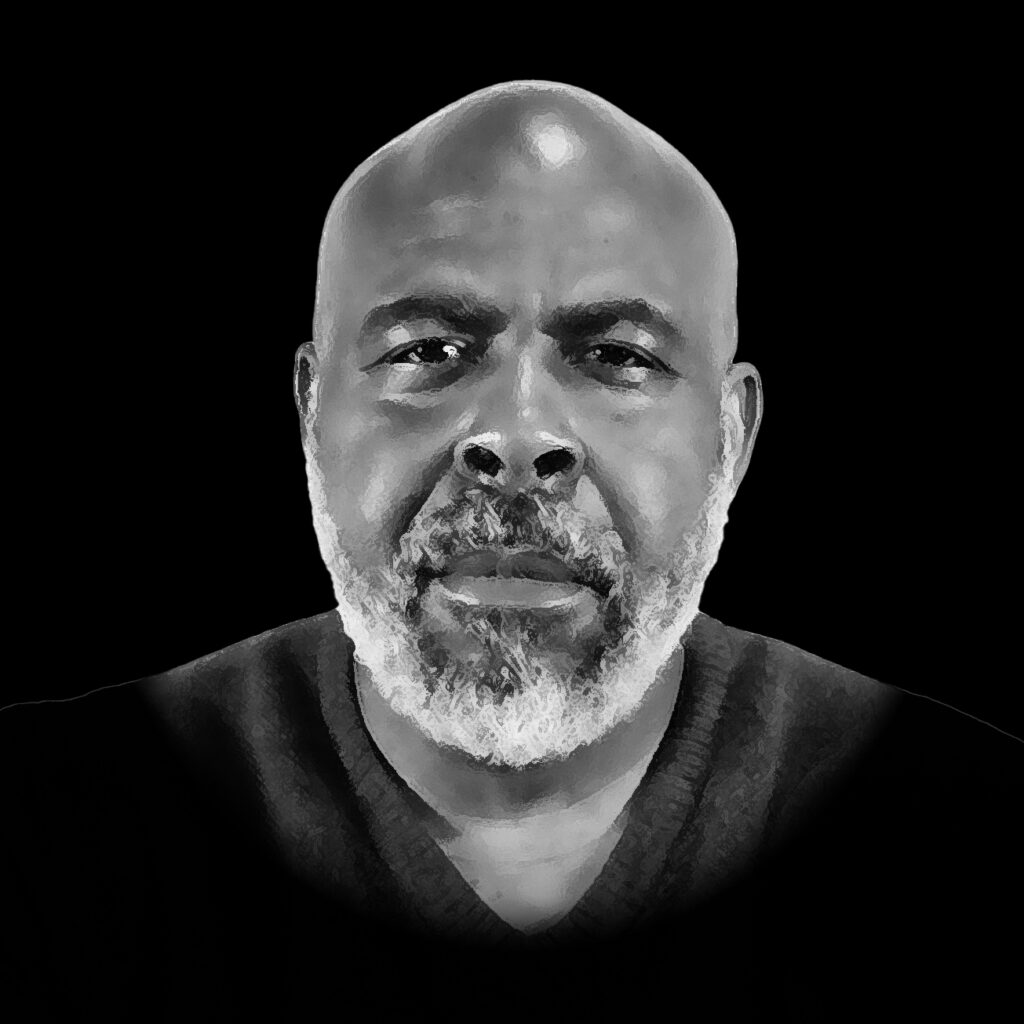In Napoleon Hill’s groundbreaking work Think and Grow Rich, he delves into six primary fears that often serve as significant obstacles to personal and professional success. These fears, which Hill identifies as the fear of poverty, criticism, ill health, death, old age, and the loss of love, are deeply embedded within human nature and shaped by our societal and psychological conditioning. While some of these fears may appear rational on the surface, Hill argues that they are often exaggerated by our thoughts and anxieties. They become ingrained in our psyche, influencing our decisions, actions, and even the opportunities we pursue. By recognizing these fears and understanding how they manifest in our lives, we gain the power to confront them head-on and push past the limitations they impose.
The Six (6) Ghosts of Fear
Each of these fears acts as an invisible barrier, subtly shaping our behavior and ultimately preventing us from reaching our full potential. The fear of poverty can trap individuals in a cycle of financial insecurity, making them reluctant to take risks or pursue new opportunities. Similarly, the fear of criticism often leads to hesitation in expressing one’s true thoughts and ideas, stifling creativity and progress. Meanwhile, the fear of ill health and death can create a mindset of fear and inaction, where individuals are too concerned with potential losses rather than embracing the present moment. These fears create a psychological gridlock, where we become paralyzed by the thought of failure or loss, ultimately impeding our ability to take meaningful action toward our goals.
To overcome these fears, Hill encourages us to recognize their origins and understand the ways they control our lives. In his work, he provides insight into the psychology of fear, showing how each fear is born from a combination of inherited beliefs, societal pressures, and personal experiences. Hill also offers practical advice for confronting these fears, urging us to replace negative thoughts with positive affirmations and empowering beliefs. By reframing our perspective and focusing on our strengths, we can begin to break free from the grip of these fears and embrace the possibilities that lie beyond them. Real-life examples of individuals who have triumphed over fear serve as powerful reminders that, no matter how deeply ingrained these fears may be, they can be defeated with persistence, courage, and a commitment to personal growth.
1. The Fear of Poverty
Napoleon Hill describes the fear of poverty as the most destructive of all fears, for it can manifest in countless ways and create a cycle of failure. It is rooted in the fear of lacking material possessions, financial security, and independence. This fear can paralyze decision-making and stifle creativity, preventing individuals from pursuing opportunities that might lead them toward prosperity.
Why We Fear Poverty
The fear of poverty often stems from the uncertainty about financial stability and survival. Hill argues that this fear keeps people locked into situations that they fear are not only financially damaging but also spiritually and mentally stifling. For example, many people fear being stuck in dead-end jobs or financial struggles, yet remain in these situations because they are afraid to take risks or pursue more lucrative opportunities.
Self-Fulfilling Prophecies
Hill emphasizes that the fear of poverty can often lead to a self-fulfilling prophecy. When people are obsessed with the idea of being poor, they end up attracting circumstances that align with that fear. It becomes harder to think creatively or act with enthusiasm, both of which are key ingredients for financial success. As Hill notes, “Man is mind. I think, therefore, I am.”
Breaking Free
Overcoming this fear requires a shift in mindset. One must refuse to accept poverty as a reality and instead take proactive steps toward financial independence. This involves cultivating a mindset of abundance rather than scarcity, and taking calculated risks to grow wealth, both materially and mentally.
2. The Fear of Criticism
Criticism is one of the most universal fears we face. We all have moments when we’re judged or criticized, and the fear of such judgment can prevent us from pursuing our goals. Hill believes that this fear can lead to an avoidance of necessary confrontations or risks that could otherwise result in personal growth and success.
Why We Fear Criticism
Hill links the fear of criticism to our inherent social nature. Humans are wired to seek acceptance within their social groups. Criticism threatens that acceptance, and the fear of being ostracized often leads people to play it safe. In Hill’s words, “Great minds discuss ideas. Average minds discuss events. Small minds discuss people.”
The Cycle of Inaction
People who fear criticism often avoid taking action, especially if it risks drawing negative attention. This avoidance is paradoxical because, by fearing criticism, one ends up missing the opportunity for personal and professional growth. It’s this hesitation that often limits us from taking the bold steps needed for success.
Overcoming the Fear
To break free from the fear of criticism, we must reframe the way we perceive judgment. Instead of focusing on how others might perceive us, we should prioritize the importance of our own values, purpose, and ideas. By doing so, we free ourselves from the need for external validation and can move forward confidently.
3. The Fear of Ill Health
The fear of ill health can have debilitating effects on one’s mental and physical well-being. Hill argues that this fear often grows from both physical and social heredity, as people are conditioned by society to fear sickness and aging. The images we have been shown of illness—often exaggerated by the media and even unethical marketers—can make this fear worse.
Why We Fear Ill Health
Our fear of ill health is not just about the physical toll of disease but also the emotional and financial costs it may bring. Hill notes that, as we grow older, our fear of ill health becomes more pronounced, especially when combined with the fear of aging and death.
Self-Sabotage
Ironically, the more we fear illness, the more we may inadvertently bring it upon ourselves. Stress and anxiety from constant worrying weaken the immune system, making it more likely for us to get sick. In this way, the fear of ill health becomes a self-sabotaging cycle.
Breaking Free
The key to overcoming the fear of ill health is to shift our focus from what could go wrong to what we can do to live a healthy life. Regular exercise, a balanced diet, and positive thinking can help protect both our minds and bodies. It’s also crucial to address underlying anxieties about health by seeking support and taking proactive steps to safeguard our well-being.
4. The Fear of Death
Hill suggests that the fear of death is perhaps the most profound and cruel of all fears. This fear often stems from religious dogma and the uncertainty about what happens after death. The unknown nature of death, coupled with the fear of eternal punishment or the absence of existence, can cause many to live in constant anxiety.
Why We Fear Death
Death is inevitable, yet society has filled our minds with contradictory ideas about what happens afterward. As Hill points out, no one truly knows what happens after death, and the fear of the unknown, fueled by religious teachings, can make us lose our grip on living fully.
The Paralyzing Effect
For many, the fear of death can lead to inaction and a reluctance to live life to its fullest. The thought of death often leads people to be overly cautious or to avoid making significant life changes that they perceive as risky. This fear prevents them from achieving their goals or fulfilling their purpose in life.
Breaking Free
Overcoming the fear of death requires acceptance. Death is an inevitable part of life, and focusing on the present moment can help us live fully. When we embrace life’s temporary nature, we begin to prioritize what truly matters—love, joy, and personal growth—rather than fear what lies beyond.
5. The Fear of Old Age
As people age, the fear of old age becomes more pronounced. This fear is closely tied to the fears of poverty, ill health, and death. Hill believes that the fear of old age is fueled by anxiety about losing independence, physical strength, and mental acuity.
Why We Fear Old Age
The fear of old age often arises from concerns about how one will be treated in later years. Will we be financially stable? Will our loved ones take care of us? Moreover, old age often brings with it the fear of diminished vitality, attractiveness, and the loss of sexual power, all of which can threaten one’s sense of identity.
Breaking Free
Hill argues that the best way to conquer the fear of old age is through self-reliance and continued personal growth. Rather than viewing old age as a time of decline, we should see it as an opportunity for wisdom and experience. A positive attitude toward aging, paired with a commitment to lifelong learning and self-improvement, can help us defy the societal expectations of aging and live with vitality.
6. The Fear of the Loss of Love
Finally, the fear of losing love—be it from a partner, family member, or friend—is deeply ingrained in human nature. Hill connects this fear to materialism and the misconception that love can be bought or earned through gifts and outward appearances.
Why We Fear the Loss of Love
At the heart of this fear is insecurity. We may worry that we aren’t “good enough” for someone we care about, or that they will find someone better. This fear can lead to jealousy, possessiveness, and unhealthy relationship dynamics, often fueled by self-doubt.
Breaking Free
The key to overcoming the fear of losing love is self-love and self-acceptance. When we value ourselves and are secure in our own worth, we are less likely to project our fears onto others. Love is not something that can be earned through material things but is built on mutual respect, trust, and emotional connection.
Conclusion: Facing the Ghosts of Fear
Hill’s six ghosts of fear—poverty, criticism, ill health, death, old age, and the loss of love—are powerful forces that often shape the trajectory of our lives in ways we may not fully realize. These fears are not merely abstract concepts; they are deeply rooted in our psychology and often operate at a subconscious level, influencing our decisions, actions, and perceptions. For instance, the fear of poverty can dictate the career choices we make, leading us to stay in unfulfilling jobs or avoid entrepreneurial pursuits out of fear of financial insecurity. Similarly, the fear of criticism can prevent us from expressing our true selves or taking risks in our personal and professional lives. These ghosts of fear are not just obstacles to material success but also to our personal growth and happiness, holding us back from becoming the best versions of ourselves.
The good news, however, is that these fears are not insurmountable. Hill teaches us that by understanding the origins of these fears, we can begin to unravel their hold on our lives. Many of these fears are learned over time, either from societal influences, upbringing, or past traumatic experiences. For example, the fear of ill health may stem from inherited beliefs about disease and aging, while the fear of death often arises from uncertainty about the afterlife or existential concerns. By recognizing where these fears come from, we can see them for what they are—products of the mind, not objective realities. Once we acknowledge their origins, we can begin to detach ourselves from their power and stop allowing them to control our actions.
Furthermore, Hill emphasizes the importance of adopting a mindset of self-empowerment to overcome these fears. This involves shifting our focus from what we fear to what we can control, such as our thoughts, attitudes, and behaviors. Through practices like positive thinking, self-affirmation, and visualization, we can reprogram our minds to break free from the limitations these fears impose. By shifting our mindset from one of fear to one of confidence and possibility, we empower ourselves to take bold actions, pursue our passions, and achieve the success and fulfillment we desire. Ultimately, Hill’s teachings remind us that the greatest obstacle to our success is often our own fear, but with the right mindset and tools, we can conquer it and unlock our full potential.
I recommend that you give his book a good read, Think and Grow Rich. You will not be disappointed!


